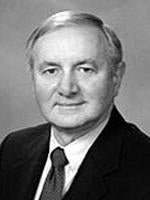The Federal Trade Commission (“FTC”) recently issued a notice of proposed rulemaking to amend the premerger notification rules (the “Rules”) that implement the Hart-Scott-Rodino Antitrust Improvements Act of 1976 (the “HSR Act”) to change the definition of “person” and create a new exemption. The new definition of person is specifically designed to obtain more information from certain investment entities, such as investment funds and master limited partnerships, by including “associates” in the definition.
In explaining the proposed change, the FTC noted that the investment landscape has undergone vast changes since the promulgation of the rules in 1978, including the proliferation of investment entities. Such entities utilize “non-corporate entities” such as limited partnerships and limited liability companies as investment vehicles. Under the Rules, non-corporate entities are their own Ultimate Parent Entity (“UPE”) when no one holds the right to 50% or more of the profits, or assets upon dissolution. Thus, although each such entity exists within a “family” of funds, each is typically its own UPE and thus its own person under the Rules.
According to the FTC, treating such investment vehicles as separate persons under the HSR Act is often at odds with the realities of how fund families are managed. A fund vehicle usually has an entity that manages that fund’s investments and that manager very often manages the investments of other funds within the fund family.
When non-corporate entities are their own UPEs but under common management, it has been difficult for the Agencies to assess the competitive impact of a transaction based on such an entity’s HSR filing because they have not been required to disclose information on any other entity within the family. In an effort to address this, in 2011, the Rules were amended to introduce the term “associates” to encompass entities that are under common management with the acquiring person. The amendment required acquiring persons to disclose in their HSR filings what their associates hold in entities that generate revenues in the same NAICS codes as the target. Although helpful, the Agencies consider it still too limited to provide a sufficient basis for assessing the competitive impact of a transaction involving an investment fund.
In an effort to remedy this situation, the proposed rule would expand the definition of person to include associates. Section 801.1(a)(1) would read as follows: “Except as provided in paragraphs (a) and (b) of §801.12, the term “person” means (a) an ultimate parent entity and all entities which it controls directly or indirectly; and (b) all associates of the ultimate parent entity.”
Under the expanded definition, a non-corporate entity filing as an acquiring person would be required to aggregate acquisitions and holdings in the same issuer across its associates. It would also be required to disclose information from its associates in the following Items of the HSR Notification Report and Form:
- Item 4 – Annual audit reports of the person and certain categories of documents relating to the transaction.
- Item 5 – Revenues by NAICS and NAPCS codes for the most recent fiscal year.
- Item 6 – Information regarding (i) subsidiaries, (ii) minority shareholders and (iii) minority shareholdings.
- Item 7 – Information regarding NAICS code overlaps between the acquiring and acquired persons.
- Item 8 – Prior acquisitions by the acquiring person in the overlapping NAICS codes.
Although the expanded definition of person also applies to acquired persons, the FTC proposes to continue the limitation of Items 5 through 7 of the Form to the assets, voting securities and non-corporate interests being acquired. The FTC also proposes to limit the financial information required by Items 4(a) and 4(b) to (1) the assets, voting securities and non-corporate interests being acquired, and (2) the UPE of those assets, voting securities and non-corporate interests.
In addition to the expanded definition of person, the Notice proposes a new §802.15 providing an exemption for certain de minimis acquisitions of voting securities. The FTC states that it has not sought to block any acquisition of 10% or less of an issuer’s voting securities. Also, although §802.9 of the Rules already exempts acquisitions of 10% or less of the voting securities of an issuer made “solely for the purpose of investment, that exemption has not been interpreted narrowly. The Notice proposes a new §802.15 which will exempt the acquisition of 10% or less of the outstanding voting securities of an issuer unless
- The acquiring person is a competitor of the issuer.
- The acquiring person holds more than 1% of the outstanding voting securities or non-corporate interests of a competitor of the issuer.
- An individual acting on behalf of the acquiring person is a director or officer of the issuer.
- An individual acting on behalf of the acquiring person is a director or officer of a competitor of the issuer.
- There is a vendor-vendee relationship between the acquiring person and the issuer in which the aggregate value of sales is greater than $10 million.
If adopted, the expanded definition of person will increase the HSR reporting burden of investment funds that are acquiring persons and likely will increase Agency scrutiny of such acquisitions. The proposed amendments are subject to public comment for 60 days after publication in the Federal Register, which is expected to occur shortly, and are unlikely to go into effect until the first or second quarter of next year.





 />i
/>i
